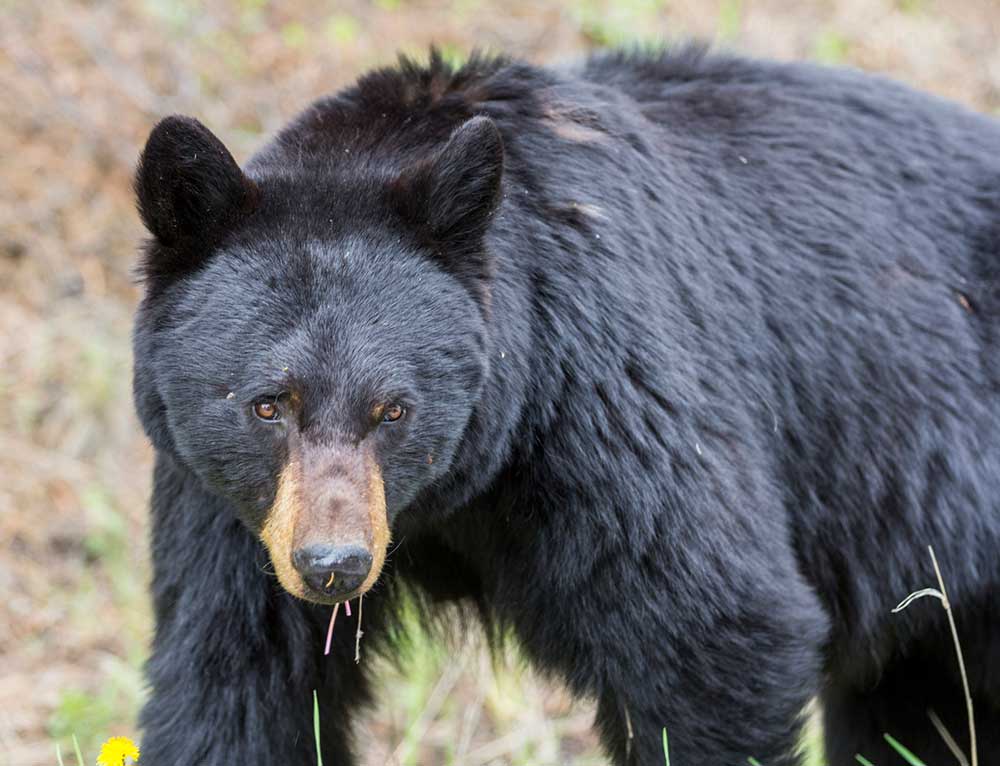Spring Time Means Bear Sighting Time


SOCIAL CIRCLE, Ga –-(AmmoLand.com)- A black bear sighting, even somewhere like metro Atlanta, is not altogether unusual, especially during the Georgia springtime.
That’s because during the spring and summer, young male bears that are “on their own” for the first time may be found roaming and sometimes stumbling into non-traditional bear range, including suburbs and urbanized areas.
Adult males typically force these young males out of familiar territory and what is considered traditional bear range. As a result, young males continue to roam as they try to establish their own territory.
In an effort to curb the instinctive alarm that residents may experience when a bear is sighted, wildlife biologists with the Georgia Department of Natural Resources’ Wildlife Resources Division want to inform and educate residents and visitors on how best to respond.
“If a black bear is sighted passing through an area, the best thing to do is to leave it alone,” says Wildlife Biologist Adam Hammond. “Residents should never approach a bear and never, under any circumstances, feed a bear. Even worse, attempting to ‘tree’ or corner a bear in a certain area often compromises both the safety and welfare of the public and the bear.”
If left alone, these young male bears, referred to as ‘transient’ bears, usually make their way back to more traditional bear range – the North Georgia mountains, the Ocmulgee River drainage system in central Georgia, or the Okefenokee Swamp in the southeastern part of the state. Increased reports of bear sightings from residents in North Georgia indicate that the bear population in this area is healthy and may be experiencing range expansion.
According to Hammond, unless there is evidence of aggressive behavior, or if a bear is continually getting into garbage or other non-natural food sources (i.e. birdseed, compost piles, grills and pet food), there is no real cause for alarm.
While there is no way to prevent a bear from wandering into a neighborhood, there are a few steps people can take to discourage one from staying:
- Never, under any circumstances, feed a bear. Such activity is unlawful.
- Keep items, such as grills, pet food or bird feeders off-limits to bears. Clean and store grills when not in use. Keep pet food indoors and take bird feeders down if bears are in the area.
- Convert to ‘bear-proof’ garbage containers, or store garbage in the garage or other enclosed area until pick-up day.
Properly securing food and garbage prevents bears from accessing non-natural, human-provided food sources and thereby, helps avoid the unhealthy process of habituation, which occurs when bears easily obtain food sources from humans, begin associating humans with food and as a result, lose their innate wariness of people.
The black bear is a treasured symbol of Georgia’s natural diversity. Now considered the most common bear in North America and the only bear found in Georgia, at one point the species was nearly eradicated from the state due to poaching and habitat loss. Yet, because of sound wildlife management practices, Georgia’s current black bear population is healthy and thriving and is estimated at approximately 5,100 bears statewide.
For more information regarding black bears, visit www.georgiawildlife.com or contact a Wildlife Resources Division, Game Management office. The public also can visit their local library to check out a copy of an informational DVD entitled, “Where Bears Belong: Black Bears in Georgia.”
